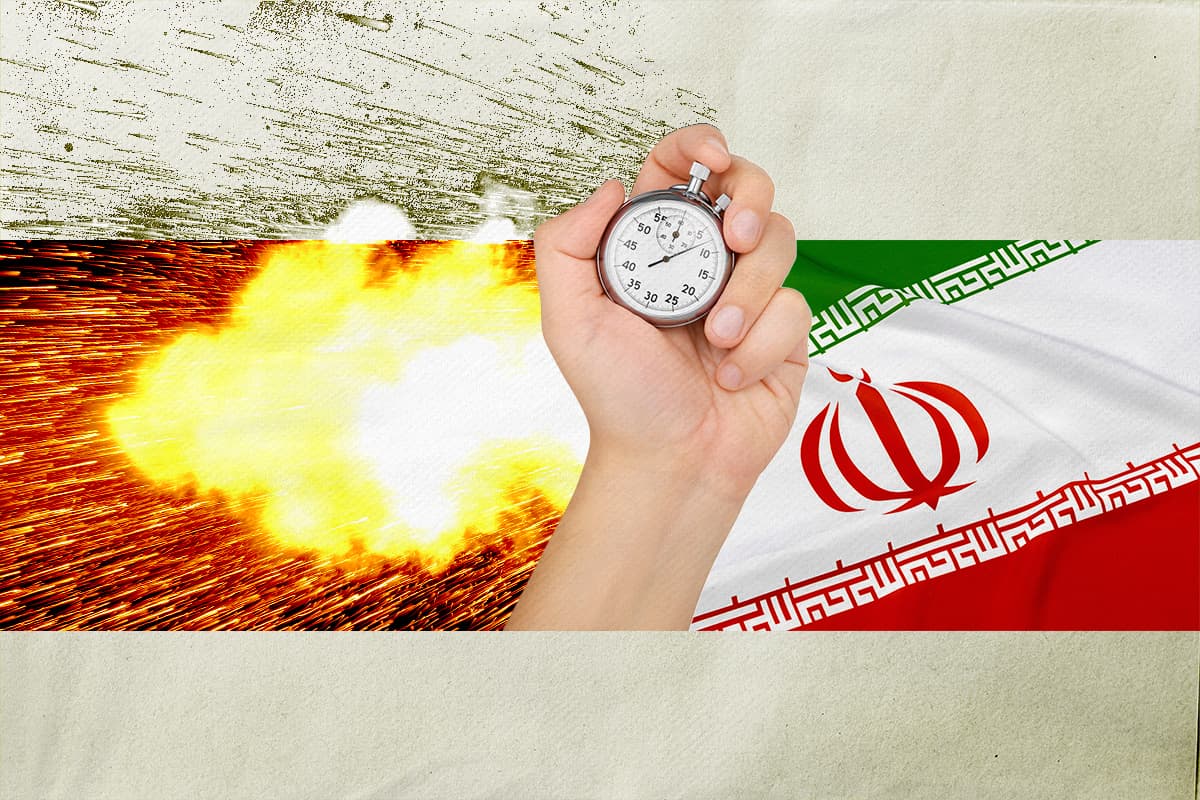Comments from hardline MP Javad Karimi-Qoddusi about Iran’s ability to test a nuclear bomb within a week have sparked significant criticism from both reformist and conservative circles. His recent attempt to clarify his position illuminates the arguments he and his supporters might use to advocate for the repeal of the current fatwa against nuclear weapon production in the future.
As allies within the Paydari Front attempted to distance Karimi-Qoddusi from his bold statements, asserting that the controversial tweets did not originate from his account, the MP released a detailed video clarifying his stance. In his explanation, he referenced recent comments by IRGC officer Ahmad Haqtalab, head of Nuclear Protection and Security, about the potential shift in Iran’s nuclear doctrine should Israel use threats against Iran’s nuclear facilities as leverage. Karimi-Qoddusi selectively quoted Supreme Leader Ali Khamenei’s 2012 statement that Iran would respond “in kind and at the same level” to any threats, strategically omitting Khamenei’s insistence that Iran would not build a nuclear weapon. Instead, he interpreted these remarks to imply that Iran would counter nuclear threats with equivalent measures, not merely with conventional arms like Katyusha rockets. Citing experts, he reiterated Iran’s capability to ramp up uranium enrichment to 90 percent within half a day, and noted that the IAEA is fully aware of these capabilities. Notably, he avoided elaborating on his claims about testing a bomb. Besides cherry-picking official statements, he attempted to point out that the Majles, too, was on board with an enrichment increase to 60 percent, adding that both the nuclear fatwa and the authorization for the range of missiles capable of carrying a nuclear warhead could change.
Many within the conservative camp have criticized Karimi-Qoddusi’s statements as detrimental to national security and have even accused him of acting on behalf of “infiltrators.” These critics argue that his actions help those who aim to build a global consensus against Iran during these tense times, ahead of a visit by IAEA chief Rafael Grossi. Notably, just hours before Iran’s assault on Israel on 13 April, Karimi-Qoddusi posted a tweet revealing Iran’s plans for retaliation, which mentioned at least one of the missiles used in Operation True Promise. This tweet further supports the accusations that he is deliberately acting against national interests.
There is no evidence to refute Karimi-Qoddusi’s claims about Iran’s nuclear capabilities. Prior to him, senior officials such as former Iranian nuclear chief Ali-Akbar Salehi and former foreign minister Kamal Kharrazi acknowledged Iran’s technical ability to build a nuclear bomb, while also emphasizing that Iran does not intend to do so. Interestingly, the warning by the IRGC officer about the potential change in Iran’s nuclear doctrine occurred prior to Israel’s attack in Isfahan. According to a New York Times report, this attack, carrying a strong message about Israeli capabilities, was directed at a target near a facility involved in converting uranium into gas for centrifuges to produce nuclear fuel. This strike was perceived by some hardline commentators as a definitive breach of Iran’s new red lines, necessitating a proper response. It remains uncertain whether Iran’s decision to downplay the attack was driven by lack of preparedness for a response, fear, or a pragmatic approach to avoid further escalation. However, despite earlier threats, Iran did not alter its nuclear stance, and the ministry of foreign affairs has reiterated the peaceful nature of the country’s nuclear program. For the time being, it seems that as long as Khamenei is alive, the fatwa against developing nuclear weapons will remain in effect. Nonetheless, this does not eliminate the ongoing desire among certain individuals and factions to acquire a nuclear bomb. There is speculation, supported by Karimi-Qoddusi himself, that such provocative rhetoric might be strategically used to coerce the West back to the negotiating table to lift sanctions against Iran.







